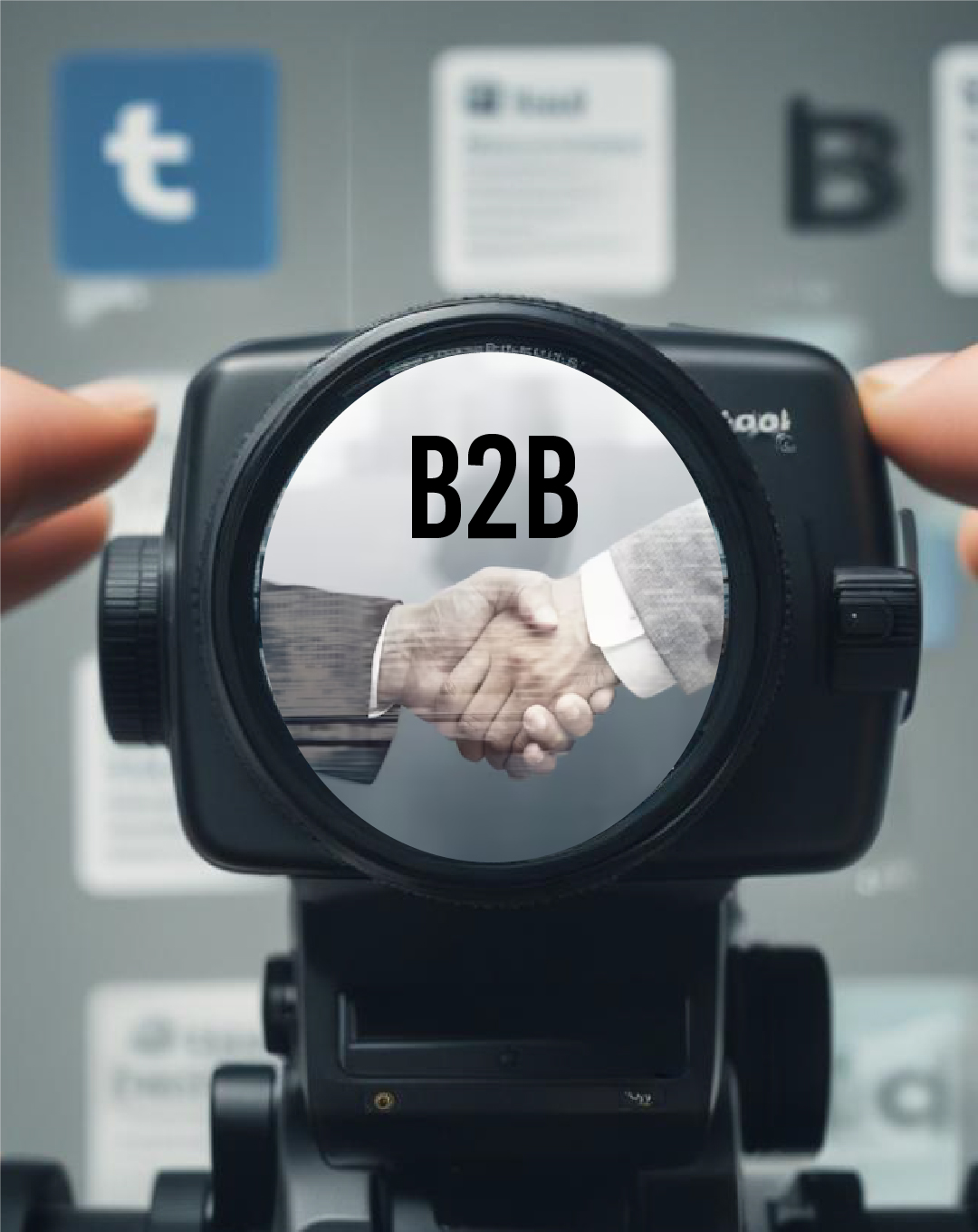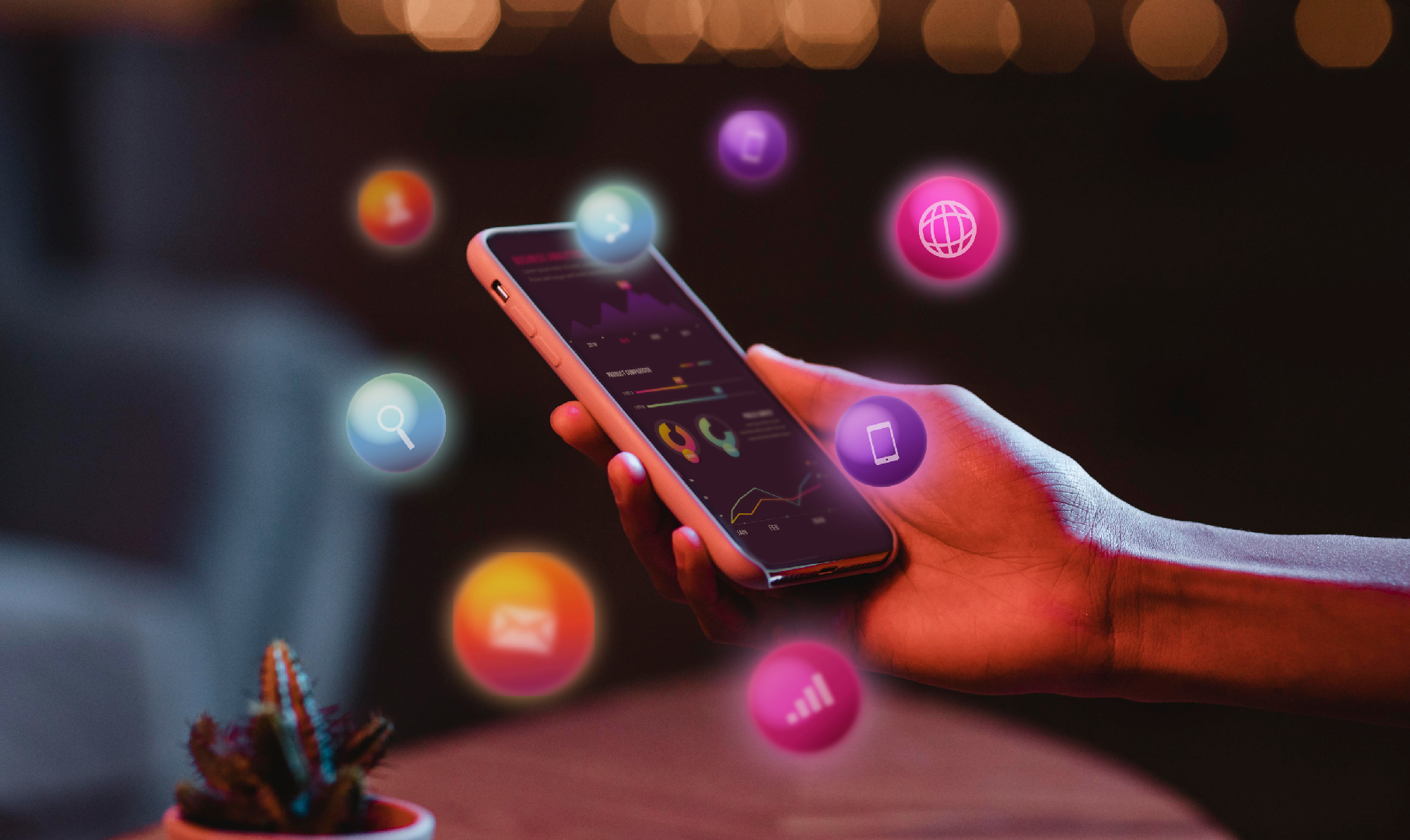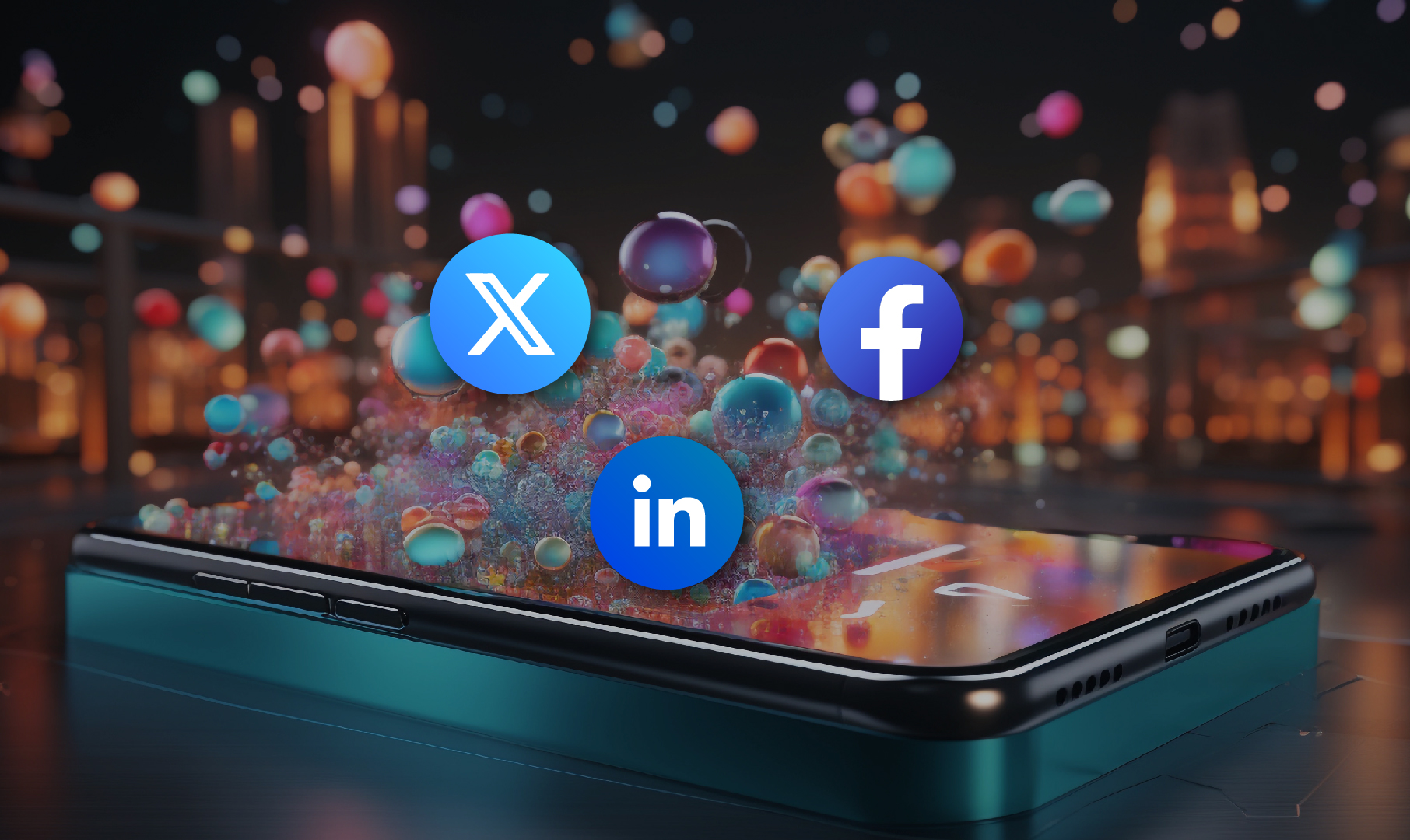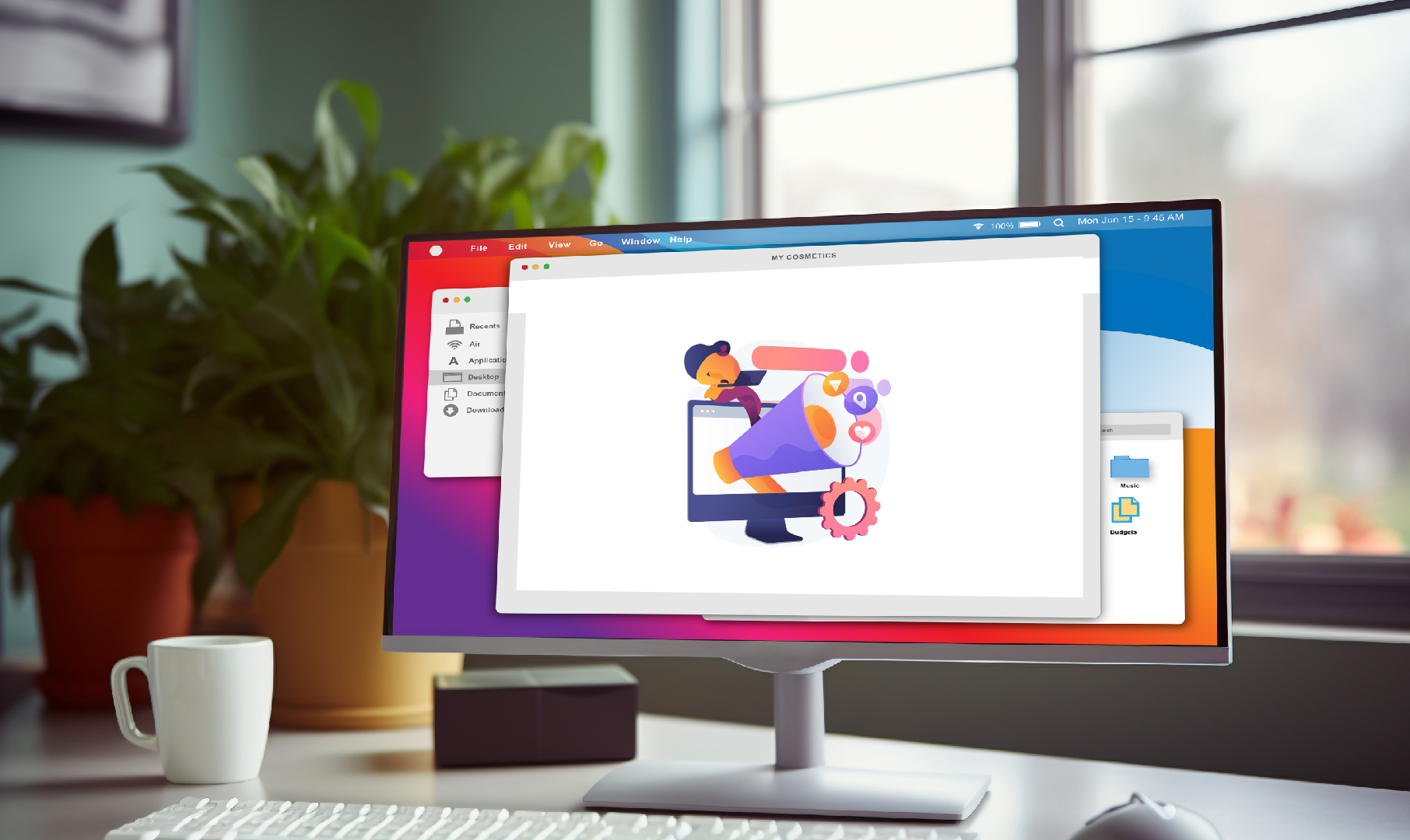Unlock the Power of Social Media for B2B Lead Generation

Unlock the Power of Social Media for B2B Lead Generation
In today’s digital world, social media and B2B lead generation form a powerful combination for driving new business opportunities. Platforms like LinkedIn, Facebook, and Twitter have evolved from simple networking sites to sophisticated hubs for targeted advertising and customer engagement. Have you ever wondered how these platforms can transform your marketing strategy? Embracing these changes is crucial for staying competitive. By integrating social media into your marketing approach, you can enhance brand awareness, cultivate valuable relationships, and drive lead generation.
In this blog, we will delve into the impact of social media on B2B marketing and highlight the most effective platforms—LinkedIn, YouTube, and Instagram—for generating leads. By the end, there will be a comprehensive roadmap for using social media to generate leads and enhance customer engagement and loyalty.
Impact of Social Media on B2B Marketing

Historical Perspective
Social media’s role in B2B marketing began in the early 2000s with platforms like LinkedIn, which became a cornerstone for professional networking. Blogging platforms like WordPress and Blogger also emerged, allowing businesses to establish thought leadership.
Twitter, launched in 2006, introduced microblogging and became a valuable tool for B2B communication with its concise, impactful content. Visual storytelling platforms like Pinterest and Instagram encouraged B2B marketers to integrate visual content into their strategies to captivate their audience.
Transitioning to today’s trends, social media’s role in B2B marketing has only grown more significant.
Current Trends
Today, social media significantly impacts B2B marketing. Users spend an average of nearly 2.5 hours daily on social media, making these platforms effective global marketplaces. Did you know that in 2023 alone, B2B marketers increased their social media investments by 20%, underscoring its pivotal role in revenue generation?
The integration of AI and automation into social media strategies allows for advanced personalization and efficient customer journey mapping. Social media marketing is now about creating a unified and seamless customer experience. Online communities and influencer marketing have become powerful tools for building brand loyalty and trust, significantly impacting lead generation and conversions.
Now, let’s look at the key social media platforms for B2B lead generation.
Key Social Media Platforms for B2B Lead Generation

LinkedIn is the premier platform for B2B lead generation, boasting over a billion members globally. It’s 277% more effective at generating leads compared to Facebook or Twitter. You can leverage LinkedIn to establish thought leadership, share educational content, and engage directly with decision-makers and influencers. Features like LinkedIn Sales Navigator enhance your ability to connect with potential customers by allowing precise targeting based on industry, job title, and more.
Facebook remains a potent tool for B2B marketers with over 3 billion monthly active users. It offers extensive reach and precise targeting options. B2B marketers can use Facebook ads to target specific demographics, job titles, and industries, making it easier to reach potential business clients. Facebook Lead Ads simplify the lead generation process by collecting prospect information directly through the platform.
Twitter offers a dynamic environment for B2B social media marketing due to its real-time nature and concise content format. It’s excellent for engaging with industry influencers and keeping up with fast-paced industry trends. B2B lead generation agencies can use Twitter to share quick updates, participate in industry conversations, and employ targeted advertising strategies to enhance brand visibility and lead generation. Twitter’s advertising options, including promoted tweets and lead generation cards, provide tools to reach and engage a relevant audience effectively.
Each of these platforms offers unique strengths that, when strategically integrated into your B2B marketing efforts, can significantly enhance your lead generation and overall marketing effectiveness.
Effective Social Media Tactics for Lead Generation

Using Paid Advertising
To maximize your lead generation efforts, consider leveraging paid social media advertising. This approach allows you to target specific demographics with precision, ensuring your message reaches the most relevant audience. Utilize platforms like LinkedIn for its superior ability to connect with professionals, or Facebook and Instagram for broader reach. Key strategies include using lead-gen ads that simplify the signup process and retargeting ads to re-engage visitors who didn’t convert the first time. The effectiveness of these ads relies heavily on continuous testing and adaptation to optimize your return on investment.
Engaging Content Creation
Creating content that resonates with your B2B audience is crucial. Start by understanding the challenges and needs of your audience and develop content that addresses these points. Use formats that encourage engagement, such as videos, infographics, and interactive posts. Incorporate storytelling to make your content relatable and engaging, ensuring it provides value that establishes your brand as a thought leader. Regular updates and a mix of content types keep your audience interested and can drive significant traffic to your site, enhancing lead generation efforts.
Building Relationships
Social media excels in fostering relationships with potential leads. Engage actively with your audience by responding to comments, participating in discussions, and sharing relevant content. Use social listening tools to monitor conversations around your industry. Building a community around your brand boosts loyalty and increases the likelihood of converting followers into leads. Consider hosting live sessions on platforms like Facebook or Instagram to interact directly with your audience.
Finally, let’s discuss how to measure the success of your social media lead generation efforts.
Measuring Success in Social Media Lead Generation
Key Metrics
Measure the success of your social media lead generation efforts with metrics like lead conversion rate, cost per lead (CPL), and lead-to-customer conversion rate. Analyze sales velocity, which measures how quickly leads move through your sales pipeline. Lead scoring helps focus efforts on leads most likely to convert, optimizing budget allocation towards high-performing channels.
Analytics Tools
Use analytics tools like Google Analytics, Hootsuite, and Sprout Social to gain insights into how social media drives traffic and engagement. Platforms like HubSpot and Salesforce integrate CRM data with social media analytics for a detailed view of how social interactions convert into leads and sales. Tools like Rival IQ and Mentionlytics offer competitive benchmarking and social listening features, helping you optimize your social media strategy.
Conclusion
As B2B marketing evolves, integrating social media platforms like LinkedIn, Facebook, and Twitter is essential for lead generation, brand awareness, and customer engagement. By using targeted advertising, engaging content, and relationship-building initiatives, you can harness the power of social media within the B2B sector. Measuring success through key metrics and analytics tools enables businesses to fine-tune their strategies for maximum impact.
Ready to elevate your B2B marketing strategy with expert guidance? Contact us at Salessy.ai for a personalized consultation and stay ahead in the digital transformation revolution.






